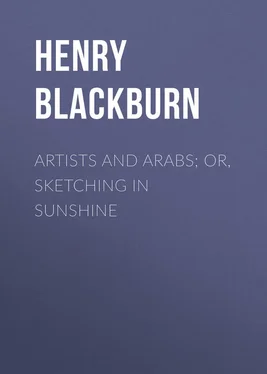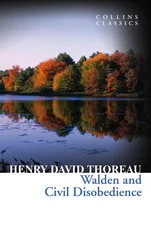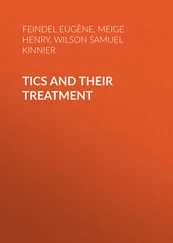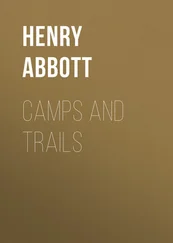Henry Blackburn - Artists and Arabs; Or, Sketching in Sunshine
Здесь есть возможность читать онлайн «Henry Blackburn - Artists and Arabs; Or, Sketching in Sunshine» — ознакомительный отрывок электронной книги совершенно бесплатно, а после прочтения отрывка купить полную версию. В некоторых случаях можно слушать аудио, скачать через торрент в формате fb2 и присутствует краткое содержание. Жанр: foreign_antique, foreign_prose, на английском языке. Описание произведения, (предисловие) а так же отзывы посетителей доступны на портале библиотеки ЛибКат.
- Название:Artists and Arabs; Or, Sketching in Sunshine
- Автор:
- Жанр:
- Год:неизвестен
- ISBN:нет данных
- Рейтинг книги:3 / 5. Голосов: 1
-
Избранное:Добавить в избранное
- Отзывы:
-
Ваша оценка:
- 60
- 1
- 2
- 3
- 4
- 5
Artists and Arabs; Or, Sketching in Sunshine: краткое содержание, описание и аннотация
Предлагаем к чтению аннотацию, описание, краткое содержание или предисловие (зависит от того, что написал сам автор книги «Artists and Arabs; Or, Sketching in Sunshine»). Если вы не нашли необходимую информацию о книге — напишите в комментариях, мы постараемся отыскать её.
Artists and Arabs; Or, Sketching in Sunshine — читать онлайн ознакомительный отрывок
Ниже представлен текст книги, разбитый по страницам. Система сохранения места последней прочитанной страницы, позволяет с удобством читать онлайн бесплатно книгу «Artists and Arabs; Or, Sketching in Sunshine», без необходимости каждый раз заново искать на чём Вы остановились. Поставьте закладку, и сможете в любой момент перейти на страницу, на которой закончили чтение.
Интервал:
Закладка:
Another rather startling sensation for the first time is the 'morning gun.' In the consulate, which is in an old Moorish house in the upper town, the newly arrived visitor may have been shown imbedded in the wall a large round shot, which he is informed was a messenger from one of Lord Exmouth's three-deckers in the days before the French occupation; and not many yards from it, in another street, he may have had pointed out to him certain fissures or chasms in the walls of the houses, as the havoc made by earthquakes; he may also have experienced in his travels the sudden and severe effect of a tropical thunderstorm.
Let him retire to rest with a dreamy recollection of such events in his mind, and let him have his windows open towards the port just before sunrise, – when the earthquake, and the thunder, and the bombardment, will present themselves so suddenly and fearfully to his sleepy senses, that he will bear malice and hatred against the military governor for evermore.
But it has roused him to see some of the sights of Algiers. Let him go out at once to the almost deserted Place , where a few tall figures wrapped in military cloaks are to be seen quietly sidling out of a door in the corner of a square under the arcades, – coming from the club where the gas is not quite extinguished, and where the little green baize tables are not yet put away for the night; 6 6 How often have we seen in the Tuileries gardens, the bronzed heroes of Algerian wars, and perhaps have pitied them for their worn appearance; but we shall begin to think that something more than the African sun and long marches have given them a prematurely aged appearance, and that absinthe and late hours in a temperature of 90° Fahrenheit may have something to do with it.
and then let him hurry out by the Bab-el-Oued and mount the fortifications, and he will see a number of poor Arabs shivering in their white bournouses, perched on the highest points of the rocks like eagles, watching with eager eyes and strained aspect for the rising of the sun, for the coming of the second Mahomet. Let him look in the same direction, eastward, over the town and over the bay to the mountains far beyond. The sparks from the chariot-wheels of fire just fringe the outline of the Kabyle Hills, and in another minute, before all the Arabs have clambered up and reached their vantage ground, the whole bay is in a flood of light. The Arabs prostrate themselves before the sun, and ' Allah il Allah ' (God is great) is the burden of their psalm of praise.
But Mahomet's coming is not yet, and so they return down the hill, and crowd together to a very different scene. The officers whom we saw just now leaving the Place , have arrived at the Champ de Mars, the drill-ground immediately below us, and here, in the cool morning air, they are exercising and manoeuvring troops. There are several companies going through their drill, and the bugle and the drum drown the Muezzins' voices, who, from almost every mosque and turret in the city, repeat their cry to the faithful to 'Come to prayers.'
CHAPTER III. THE MOORISH QUARTER – OUR STUDIO
WE said, in the last chapter, that in Algiers there was very little going on for the visitor or idler; but if the traveller have anything of the artist in him, he will be delighted with the old town. If he is wise he will spend the first week in wandering about, and losing himself in the winding streets, going here, there, and everywhere on a picturesque tour of inspection. His artistic tendencies will probably lead him to spend much time in the Moorish cafés, where he may sit down unmolested (if unwelcomed) for hours on a mat, and drink his little saucer of thick, sweet coffee, for which he pays one sou, and smoke in the midst of a group of silent Moors, who may perchance acknowledge his presence by a slight gesture, and offer him their pipes, but who will more frequently affect not to see him, and sit still doing absolutely nothing, with that dignified solemnity peculiar to the East.
He will pass through narrow streets and between mysterious-looking old houses that meet over head and shut out the sky; he will jostle often in these narrow ways, soft plump objects in white gauze, whose eyes and ankles give the only visible signs of humanity; he may turn back to watch the wonderful dexterity with which a young Arab girl balances a load of fruit upon her head down to the market place; and he will, if he is not careful, be finally carried down himself by an avalanche of donkeys, driven by a negro gamin who sits on the tail of the last, threading their way noiselessly and swiftly, and carrying everything before them; 7 7 How different from what we read of in Æothen . The cry is not, 'Get out of the way, O old man! O virgin! – the Englishman, he comes, he comes!' If we were to push an old man out of the way, or, ever so little, to forget our duty to a fair pedestrian, we should be brought up before the Cadi, and fined and scorned, by a jury of unbelievers!
and he will probably take refuge under the ruined arch of some old mosque, whose graceful lines and rich decoration are still visible here and there, and he will in a few hours be enchanted with the place, and the more so for the reason that we have already hinted at, viz.: – that in Algiers he is let alone , that he is free to wander and 'moon' about at will, without custodian or commissionaire, or any of the tribe of 'valets de place.'
He may go into the Grand Divan; or into the streets where the embroiderers are at work, sitting in front of their open shops, amongst heaps of silks, rich stuffs and every variety of material; or where the old merchant traders, whose occupation is nearly gone, sit smoking out their lazy uncommercial lives.
He may go to the old Moorish bath, in a building of curious pattern, which is as well worth seeing as anything in Algiers; and, if an Arabic scholar, he may pick up an acquaintance or two amongst the Moors, and visit their homes when their wives are away for the day, on some mourning expedition to a suburban cemetery. He may explore innumerable crooked, irregular streets, with low doorways and carved lattices, some painted, some gilt; the little narrow windows and the grilles, being as perfectly after the old type as when the Moors held undivided possession of the city.
One old street, now pulled down, we remember well; it was the one always chosen for an evening stroll because it faced the western sea, and caught and reflected from its pavement and from its white walls, the last rosy tints of sunset, long after the cobblers and the tinkers in the lower town had lighted their little lanterns, and the cafés were flaring in the French quarter. It was steep and narrow, so steep, in fact, that steps were made in the pavement to climb it, and at the upper end there was the dome of a mosque shining in the sun. It was like the child's picture of 'Jacob's ladder,' brighter and more resplendent at each step, and ending in a blaze of gold.
We are often reminded of Spain in these old streets; there are massive wooden doors studded with iron bosses or huge nails as we see them at Toledo, and there is sometimes to be seen over them, the emblem of the human hand pointing upwards, which recalls the Gate of Justice at the entrance to the Alhambra at Granada.
The Moors cling to their old traditions, and the belief that they will some day reconquer Spain is still an article of faith. But if ever the Moors are to regain their imaginary lost possessions in Spain, they must surely be made of sterner stuff than the present race, who, judging from appearances, are little likely to do anything great.
There are little shops and dark niches where the Moors sit cross-legged, with great gourds and festoons of dried fruits hanging above and around them; the piles of red morocco slippers, the oddshaped earthenware vessels, and the wonderful medley of form and colour, resembling in variety the bazaars at Constantinople, or carrying us in imagination still further East.
Читать дальшеИнтервал:
Закладка:
Похожие книги на «Artists and Arabs; Or, Sketching in Sunshine»
Представляем Вашему вниманию похожие книги на «Artists and Arabs; Or, Sketching in Sunshine» списком для выбора. Мы отобрали схожую по названию и смыслу литературу в надежде предоставить читателям больше вариантов отыскать новые, интересные, ещё непрочитанные произведения.
Обсуждение, отзывы о книге «Artists and Arabs; Or, Sketching in Sunshine» и просто собственные мнения читателей. Оставьте ваши комментарии, напишите, что Вы думаете о произведении, его смысле или главных героях. Укажите что конкретно понравилось, а что нет, и почему Вы так считаете.












